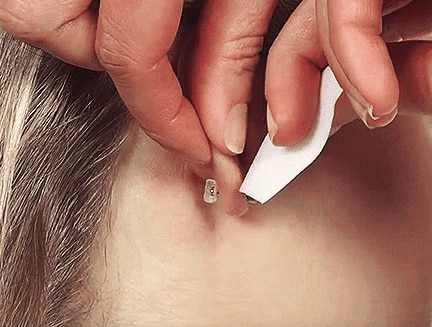Choosing to get a piercing is an exciting process that entails several decisions, including the area you want to have pierced, the material of the piercing, its colour, size, and type.
However, keep in mind that there are more than just the esthetic related questions to answer. When deciding to do a piercing, you must also consider health, hygiene and long term side effects. Although these issues might not be as exciting as jewelry selection, overlooking them can cause you unnecessary problems and potentially dangerous health issues.
Choosing the right piercer will go a long way in keeping you safe and satisfied with the overall look of your piercing.
To learn what to look for when choosing a piercer, here is a list of piercing dos and don’ts.
Traditional piercing guns can pose a risk transmitting blood-borne viruses and infections. This is because they cannot be completely sterilised and they are designed in a way that your skin can come into contact with the blood of a previous client. Moreover, piercing guns can cause significant tissue damage.
Regardless of the style of the shop, your piercing provider should follow specific health regulations that have been set in place to keep you safe from harm.
To comply with health regulations:
At home DIY piercing kits are available all for purchase online. However, doing your own piercing can put you at risk of damaging your skin or contracting an infectious disease.
We highly recommend that you complete your piercing with a licensed piercer.
If you have selected a piercer, do not be afraid to ask questions regarding your piercer’s experience and procedures. Remember that you are protecting your health and safety.
If you feel that your questions are not being answered or if you do not feel comfortable with your piercer, do not feel pressured to go on with your piercing. You can easily find another piercing facility where you can feel comfortable and safe.

For these reasons,
DO choose an experienced piercing provider who will follow standard procedures and health and safety regulations.
DO ask the piercer to provide you with detailed information regarding the procedure and how to care for your piercing after the procedure. This should be done before the piercing is completed.
DO ensure that the piercing provider will be able to help you if any complications arise.
DO ensure the piercing jewelry is non-allergenic and nickel-free.
Need more information regarding our safe medical piercing method that eliminates any chance of your skin coming into contact with unsterilized equipment or material? Contact us today
77 Hunter Street East
Hamilton, ON L8N 1M4
Centre Street North Clinic
6213 Centre St NW, Suite 10
Calgary, AB T2K 0V2
272 Oxford Street West
London, ON N6H 1S9
51 Benton Street
Kitchener, ON N2G 3H1
96 Niagara Street
St. Catharines, ON L2R 4L4
720 Guelph Line, Suite 303
Burlington, ON L7R 4E2
Square Care Medical Clinic
550 Arbutus Way
Mississauga, ON L5B 3M8
Henry Medical Centre
195 Henry St, Unit 05
Brantford, ON N3S 5C9
Chand Morningside Plaza
1145 Morningside Avenue, Unit 19
Scarborough, ON M1B 0A7
247 Queen Street E, Unit 11
Brampton, ON L6W 2B5
1780 Albion Road, Unit 6
Etobicoke, ON M9V 1C1
77 Hunter Street East
Hamilton, ON L8N 1M4
Centre Street North Clinic
6213 Centre St NW, Suite 10
Calgary, AB T2K 0V2
272 Oxford Street West
London, ON N6H 1S9
51 Benton Street
Kitchener, ON N2G 3H1
261 Martindale Rd Unit 6
St. Catharines, ON L2W 1A1
672 Brant Street, Suite 200
Burlington, ON L7R 2H3
10 Kingsbridge Garden Circle
Suite 305
Mississauga, ON L5R 3K6
Henry Medical Centre
195 Henry St, Unit 05
Brantford, ON N3S 5C9
Doctors On Albion
1780 Albion Road, Unit 6
Etobicoke, ON M9V 1C1